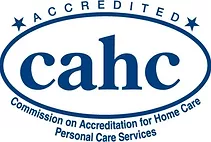About half of all persons over the age of 75 suffer from some form of hearing loss. Not being able to speak with people can have a substantial influence on health and wellness. However, hearing loss is typically seen as a natural part of aging and minor irritation. It can be frustrating to communicate with someone who can’t hear you, but you need to remember this is something that can’t be helped, and you should remain as patient as possible. Here are some tips on communicating with your elderly loved one and how elder care can help.
Eliminate All Background Noise When Talking About Something Important
Remove any distracting sounds when talking to your elderly relative. The TV, radio, and other distracting noisemakers should be muted. If you’re taking a loved one out to a restaurant, try to get them a table away from the kitchen or a large gathering of people. When elderly people lose their hearing, they may get frustrated, humiliated, or bewildered because they cannot follow discussions. As a result, individuals may only go out and participate in things they once enjoyed if they feel safe doing so in a group setting. Always eliminate all the noise you can to help them feel like they know what you’re saying and what’s happening.
Express Yourself Better
Express yourself clearly to improve a senior’s comprehension of what you say. Use expressive motions and expressions to convey your message. If you want to be heard and understood, ensure you face your loved one when conversing. Having the room’s lights on will also help to draw attention to your facial emotions. Sometimes overreacting (to you) can actually be helpful when talking to a senior. Be bold with your hand gestures, and use your facial expressions when talking to your loved one.
Take Turns Speaking to Each Other
Make sure that your loved one is not trapped in a conversation where everyone is talking at once. Your loved one may get overwhelmed and disengage from the discussion if many people are talking at once. If you’re in a group conversation, ensure you allow just one person to speak. Even if it’s just you or an elder care provider conversing with your loved one, only one person should be speaking at a time. Do not interrupt your seniors while they are speaking; let them have their time to speak openly, and then you can speak. If they talk and then you talk, they are more likely to hear you and understand what you’re saying.
Repeat Yourself If They Can’t Hear You
Do not be shy about repeating yourself for the sake of your elderly relative who may be having difficulty understanding what you are saying. It may be appropriate to gently raise your voice. Yet, you should restrain yourself if you feel the urge to yell at your loved one. Think about how you can say what you want in fewer words to get your point through before you say it again.
If you or an aging loved one is considering elder care in Livingston, NJ, please contact the caring staff at Adult Alternative Home Care today. (888) 664-1769
- Home Care Assistance Can Help Seniors Manage Self-Care Tasks - April 24, 2025
- The Superfood You Shouldn’t Miss - April 9, 2025
- First Home Care Visit? Here’s The Inside Scoop - April 9, 2025


